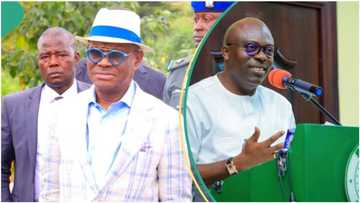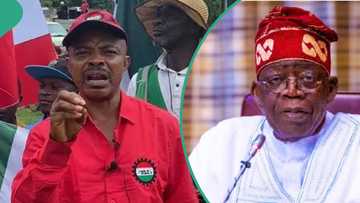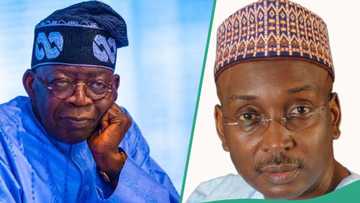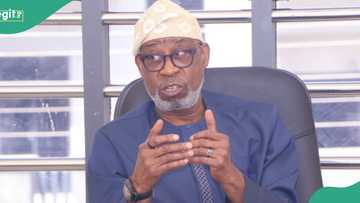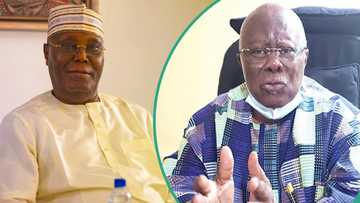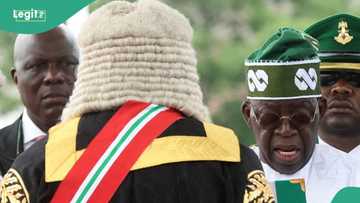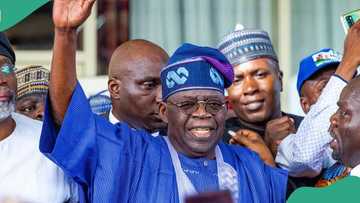Year in Review: 7 Political Events That Shaped Nigeria in 2023
- The year 2023 is gradually coming to a close, and the political landscape of Nigeria has been greeted with intrigues, suspense and controversies
- From the 2023 general elections to the rigid policies of President Bola Tinubu and the political acrimony in some states that have capped up interest in 2023 in Nigerian politics
- In this piece, Legit.ng tracks back to some of the memorable political happenings in 2023 that would stand the test of time in Nigeria's history
Legit.ng journalist Segun Adeyemi has over 9 years of experience covering political events, civil societies, courts, and metro
FCT, Abuja - Nigeria's political scene experienced significant and lasting changes in 2023, profoundly shaping the country's social and political landscape.
As the country navigates the complex intersections of governance, identity, and power, reflecting on a number of political events that have played a defining role in shaping Nigeria's trajectory this year is imperative.
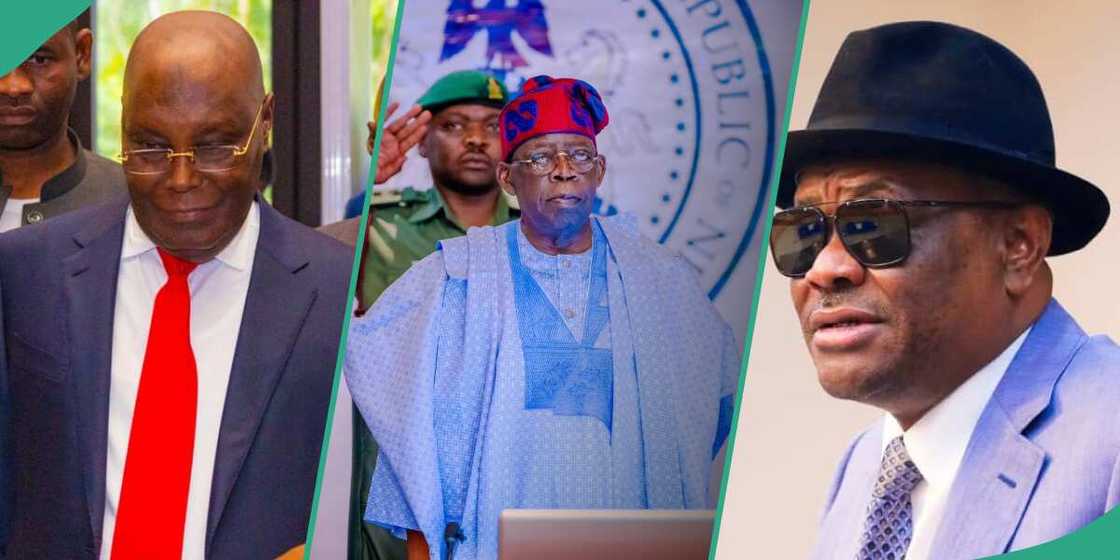
Source: Facebook
This article delves into the multifaceted tapestry of Nigerian politics in 2023, exploring the significance of each key event and unravelling the implications they hold for the nation's future.
PAY ATTENTION: Share your outstanding story with our editors! Please reach us through info@corp.legit.ng!
As we dissect the unfolding narrative of Nigeria's political landscape, these five events emerge as the focal points that encapsulate the year's essence and serve as crucial benchmarks for assessing the nation's progress and challenges on its democratic journey.
1. Wike as FCT minister
It would be typical to start with the 2023 general elections as one of the significant events that shaped Nigeria's political landscape in the year in review.
However, it would have been worthwhile if an upset had occurred in Nigeria's most anticipated general elections, but as expected, the ruling All Progressives Congress (APC) triumphed and produced Bola Ahmed Tinubu as the 16th President of the Federal Republic of Nigeria.
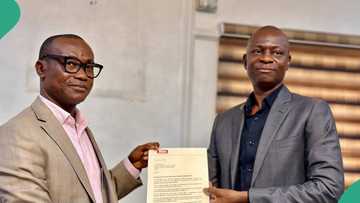
Read also
Entrepreneur and Zeetin founder Azibaola Robert urges collaborations after COP28 as he bags award
The least expected thing transpired when President Tinubu was setting up his cabinet when he incorporated an opposition member into the executive chamber in the person of Nyesom Ezenwo Wike, the immediate past governor of Rivers state and a member of the Peoples Democratic Party (PDP).
For many political pundits and enthusiasts, the nomination of Wike into President Tinubu's cabinet was expected after pulling off his electoral relevance at the presidential poll by delivering Rivers state to Tinubu.
Many had tipped him to be the Minister of State for Petroleum or the Minister of Niger Delta Affairs. But to the surprise of many, Wike was declared the Minister of the FCT, a place close to the seat of power.
This announcement stunned the public as it had been a tradition that the position had been allotted to the northerners and not even the indigenes of Abuja (Gbagyis).
Wike subsequently became the first non-northerner to hold the position since the restart of democracy in 1999 and the third after Mark Emeka Okoye and Mobolaji Ajose-Adeogun.
The former Rivers state governor has since hit the ground running with his radical infrastructural development reforms and revenue-generation policies.
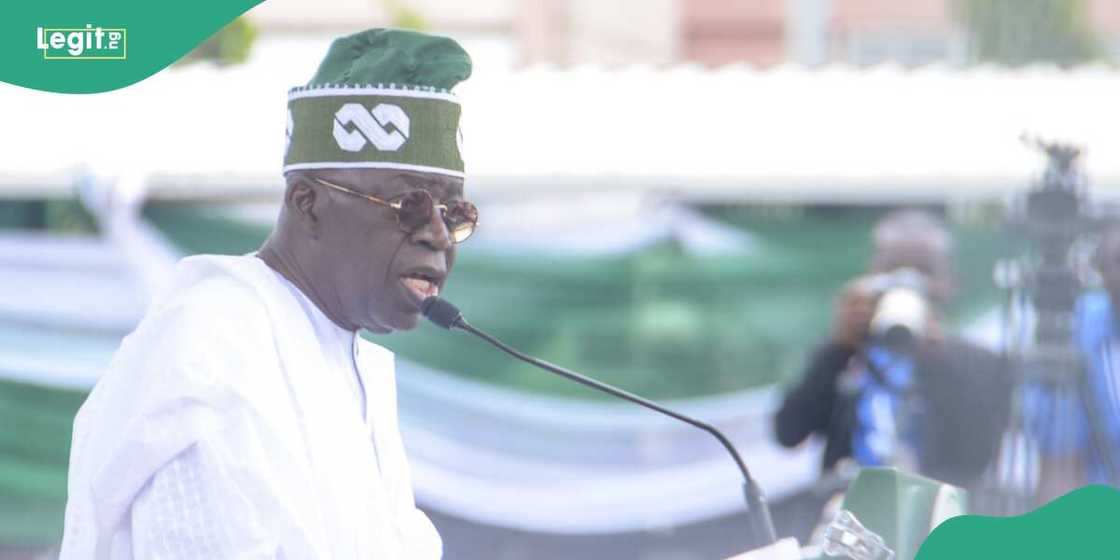
Source: Getty Images
2. Tinubu's inauguration/Removal of subsidy
The inaugural speech of President Tinubu after he was sworn in on Monday, May 29, at the iconic Eagle Square in Abuja was arguably one of the defining moments that shaped the economic status of Nigeria.
Tinubu became famous for declaring the removal of petrol subsidies, a decision many economists and political enthusiasts believed was long overdue.
This decision was unexpected as many criticised Tinubu, declaring it too soon without putting in place mechanisms to curb the after-effects of the decision.
The decision immediately triggered inflation in the price of commodities, transportation and services by over 100 per cent and plunged Nigeria into economic hardship that had never been experienced before.
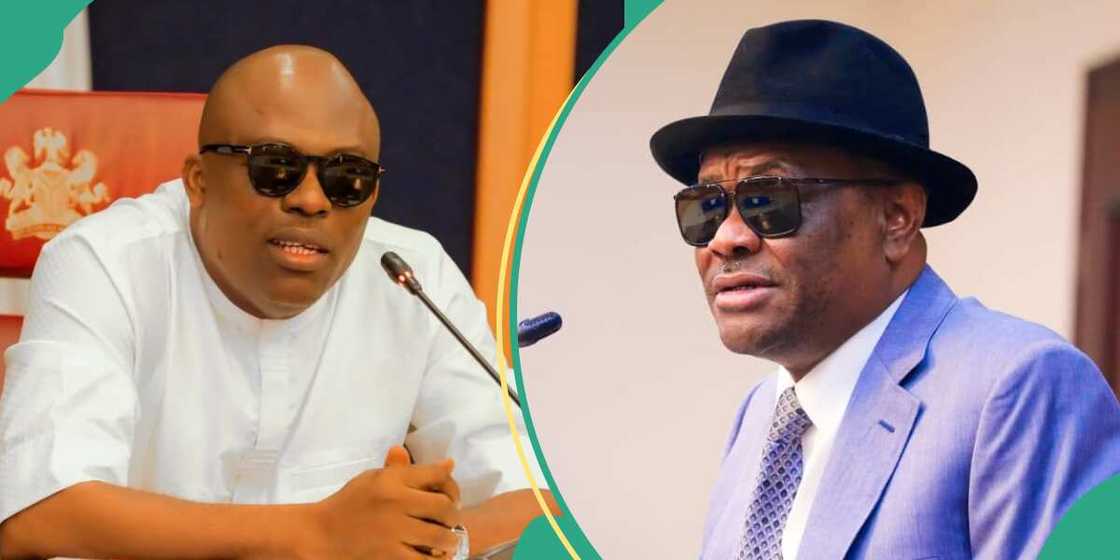
Source: Facebook
3. Rivers crisis (Wike vs Fubara)
This is one of the political feuds that rocked the headlines of all the Nigerian dailies. The immediate past governor of Rivers state, Nyesom Wike and his successor, Sim Fubara, were entangled in political acrimony over the tussle for political structure in the oil-rich state.
The crisis between both parties burst open when unknown explosives attacked the Rivers state House of Assembly after it was rumoured that there was a plot to impeach Governor Fubara.
The relationship between Wike and Fubara had deteriorated due to the threats of impeachment against the governor, with speculations pointing fingers at Wike for being involved in the impeachment scheme.
This came after some top officials of the Rivers state assembly loyal to Governor Fubara were removed to solidify the impeachment plot further.
Wike, who reacted to the feud in a press briefing, admitted that he was in a political tussle with the incumbent, stating that losing his political base would result in losing his political relevance.
He expressed that he remains unaffected by any attempts to tarnish his reputation.
He firmly stated that the correct course of action must be followed.
Meanwhile, Legit.ng reported that Governor Fubara tendered a public apology to the residents of Rivers state as he also thanked President Bola Tinubu for his swift intervention in the crisis.
He said:
“As governor, I sincerely apologise to the good people of Rivers State for the regrettable anxieties of the last few days, while thanking you all for your concerns, and continued support, love, and prayers. May God continue to bless our dear Rivers State.”
4. Edo crisis (Obaseki vs Shaibu)
The rift between Governor Godwin Obaseki and his deputy, Philip Shaibu, was another major political event that rocked the Nigerian dailies.
The antecedents of their feud were reported to have escalated when it was rumoured that Shaibu had secretly made his intention known that he would be contesting for the governorship seat of Edo state when Obaseki's tenure ends in 2024.
It was later gathered that Obaseki accused his deputy of planning a coup against him to become the state governor.
Obaseki, while addressing some PDP loyalists, disclosed that he began to doubt the loyalty of Shaibu when he was working for another candidate, aside from his, as speaker of the state House of Assembly.
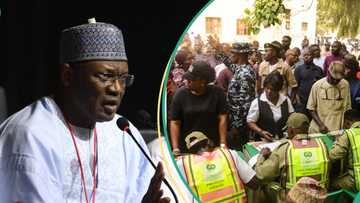
Read also
Rivers: INEC gets deadline to conduct by-elections to replace 27 lawmakers who defected to APC
The governor said that the claim that there have been moves to impeach him as deputy governor was false and that he would not talk much about it since the matter is in court.
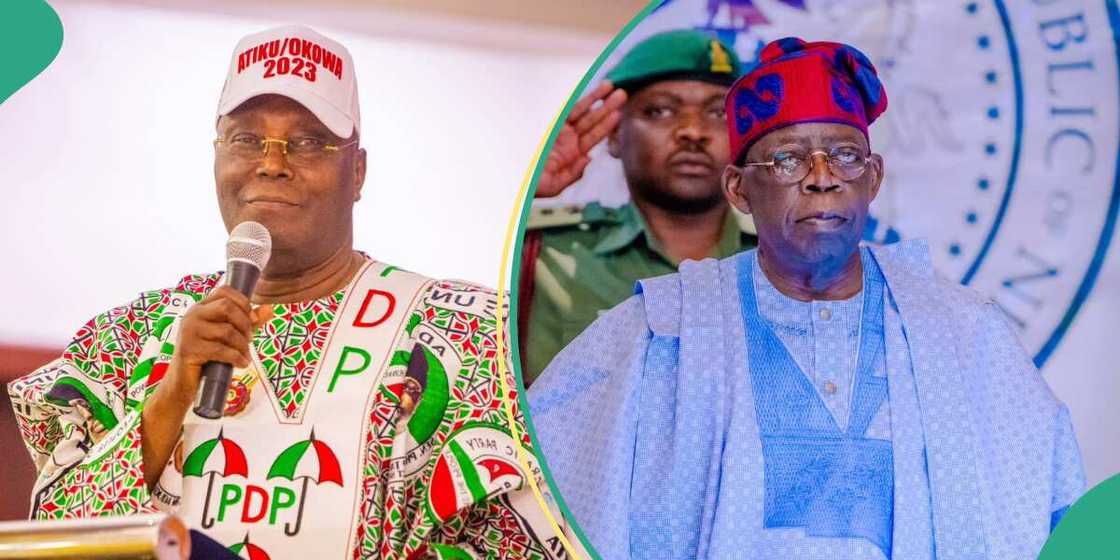
Source: Facebook
5. Tinubu's CSU certificate saga
The alleged disparities in the academic records of President Bola Tinubu from the Chicago State University (CSU), Illinois, became a major scandal that threatened the credibility of Nigeria's democracy.
Tinubu's archrival, Atiku Abubakar, filed a suit in a US court seeking to obtain the academic records of the president to tender as evidence in a lawsuit seeking his removal at the Supreme Court in Nigeria.
Atiku and his legal team questioned Tinubu's attendance at the American school as well as the issue of the identity of the real student with the bearer of the name in the certificate he submitted to INEC before the presidential poll.
Tinubu, on the other hand, fought back as his legal team tried to impede Atiku's request for their client's academic records, describing it as intrusive.
Tinubu's legal attorney said:
“Atiku’s request is unduly intrusive because it allows Applicant (Atiku) to conduct a fishing expedition into Intervenor’s private, confidential, and protected educational records.”
After weeks of protracted legal battle, a unanimous decision was reached by seven-member justices of the Supreme Court to dismiss all the petitions of Atiku Abubakar because they lacked merit.
6. Peter Obi and The OBIdient Movement
What Atiku and other critics disregarded as mere social media activism eventually became a full-blown movement that swept 12 states, including Tinubu's Lagos and the FCT.
Although Obi and the Labour Party could only emerge as a second runner-up behind eventual winner APC's Tinubu and second-placed Atiku of the PDP, 43 National Assembly seats and a gubernatorial seat should be a consolation.
OBIdients brought an unprecedented youthful vigour to Nigeria's elections, which will particularly reverberate in the minds of any dissenting critic dragged on social media.
7. Ethnic hostilities on Lagos as no man's land
The significance of Lagos as Nigeria's economic hub and socio-cultural melting pot meant that elections in Lagos are bound to be more of a national affair than a Southwestern one.
The buildup to the last governorship in Lagos was more chaotic than expected because of LP's presidential election victory in the state, which put the incumbent, Babajide Sanwo-Olu, on his toes. The support Gbadebo Rhodes-Vivour enjoyed from celebrities made it appear like an upset was on the tables.
However, the narrative of Lagos as no man's land sparked an ethnic conflict between the supposed Yoruba natives and the Igbo settlers. The landslide victory with which the ruling APC won suggested that the ethnic tension was instrumental in asserting that Yorubas remain the 'owners of Lagos.'
Why Tinubu’s budget will ensure value for money, ex-lawmaker
Meanwhile, more positive reviews have continued to greet the 2024 appropriation bill presented by President Bola Tinubu before the National Assembly.
Former member of the House of Representatives Robinson Uwak described it as the people's budget.
Uwak stated that President Tinubu's budget could revitalise the Nigerian economy and alleviate poverty for Nigerians.
PAY ATTENTION: Unlock the best of Legit.ng on Pinterest! Subscribe now and get your daily inspiration!
Source: Legit.ng


